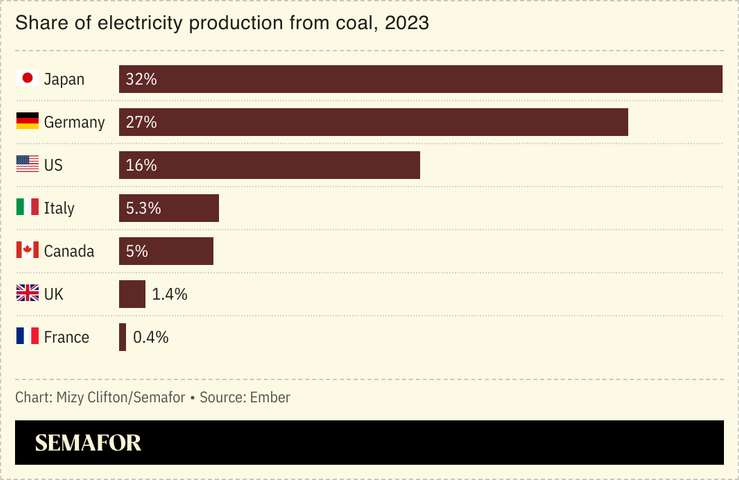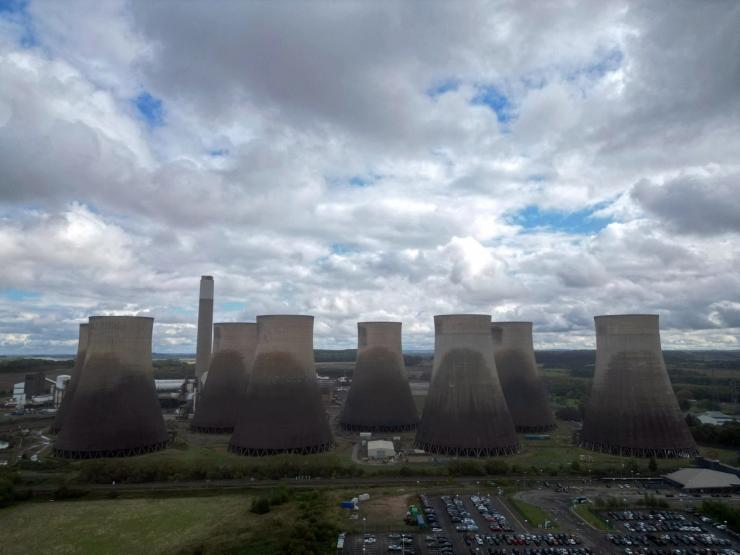The News
Britain became the first member state of the “group of 7” countries to phase out coal for electricity.
The 142 year-old Ratcliffe-on-Soar power station in central England shut down Monday, a milestone hailed as a major achievement by both environmentalists and lawmakers.
While the world’s first coal-fired electricity station was built in London by Thomas Edison in 1882, the country’s move away from the fossil fuel has accelerated in the last decade, analysts noted — other G7 member states may lag by comparison.
SIGNALS
G7 target to scrap coal by 2035 in doubt
Coal generation has declined by 52% across OECD countries since 2007, and a third are now coal free, with three-quarters set to phase out the fossil fuel entirely by 2030, according to an Ember report published Monday. However, there is still “a lot of work to do” to meet the G7’s target of scrapping coal by 2035 across its member nations, a researcher at Global Energy Monitor told Reuters. At the G7 meeting in April, the group’s more coal-reliant countries, Germany and Japan, were granted more time to meet the target if they require it, prompting criticism from environmentalists.

UK reflects benefits of long-term phaseout policy
The UK’s transition from coal — which in the 1980s produced 80% of the country’s electricity needs — has been “remarkably swift,” the managing director of global energy think tank Ember told The Guardian. Other countries might note that key to its achievement were “long-term goals” and “policy stability about where you want to get from there,” a climate expert at E3G noted to CarbonBrief, pointing to long-past measures like the then-Labour government’s 2008 Climate Change Act, which banned new coal plants and was kept by the proceeding Conservative administrations. Other G7 nations, such as the US and Germany, continued to build new coal capacity through 2010, which has effectively locked in a slower phase-out timeline, the outlet noted.
Future energy transition needs to avoid ‘brutal’ side effects
The UK’s transition has been “brutal and profound,” tipping entire regions into economic decline, two experts argued in The Conversation, adding that, if the UK is to phase out oil and gas, lawmakers need to account for workers or risk similar or worse long-term social and political pain. One pathway lies in exploiting any potential “overlap” between fossil fuel hubs and renewable energy potential, as think tank The Brookings Institute previously argued the US can do, although some workers will require retraining, which is both time consuming and expensive, a supply chain expert told IEEE Spectrum.



